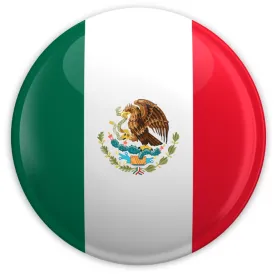A. Legislative Updates
1. House releases legislative agenda targeting “Big Tech.”
In June 2021, the U.S. House of Representatives announced a bipartisan legislative agenda aimed at curbing “Big Tech” monopoly power, comprised of five separate bills focused on prohibiting discriminatory conduct by dominant platforms; prohibiting acquisitions of competitive threats; eliminating the ability to leverage control over one line of business to gain advantages in another; lowering barriers to entry and switching costs; and updating increasing merger filing fees for deals valued in excess of $1 billion.
The agenda, titled “A Stronger Online Economy: Opportunity, Innovation, Choice,” results from a 16-month investigation into the state of competition in the digital marketplace:
-
The “American Innovation and Choice Online Act” would prohibit discriminatory conduct including self-preferencing.
-
The “Platform Competition and Opportunity Act” would prohibit certain acquisitions of competitive threats by “dominant” platforms.
-
The “Ending Platform Monopolies Act” would also eliminate the ability of dominant platforms to leverage scale across business lines to self-preference.
-
The “Augmenting Compatibility and Competition by Enabling Service Switching (ACCESS) Act” would attempt to clear barriers to entry and reduce switching costs for businesses and consumers through interoperability and data portability requirements.
-
The “Merger Filing Fee Modernization Act” would update filing fees for mergers for the first time in two decades, increasing them for deals valued above $1 billion.
“The Committee’s bipartisan investigation into digital markets uncovered overwhelming evidence of anti-competitive conduct that has seriously impacted consumers and small businesses,” said House Judiciary Committee Chairman Jerrold Nadler. On June 24, these five House bills that would impose sweeping changes to federal antitrust law were passed out of the House Judiciary Committee, teeing them up for a full House vote.
2. Senate introduces legislation in response to House antitrust agenda.
On June 15, Senate Republicans led by Mike Lee (R-UT) unveiled the “Tougher Enforcement Against Monopolies (TEAM) Act,” which responds to and criticizes the House bills for not doing enough to reign in Big Tech.
The TEAM Act’s key features include:
-
Transferring all merger review to DOJ (eliminating differences in review and enforcement process between FTC and DOJ);
-
A repeal of the Illinois Brick and Hanover Shoe doctrine; which cases effectively barred indirect purchasers from claiming damages under federal law;
-
Authority granted to DOJ to recover trebled damages on behalf of consumers;
-
Lowering of burden of proof for transactions tNormalhat result in a company holding a market share of at least 33%; and a prohibition on mergers resulting in a 66% share except when “necessary to prevent serious harm to the national economy”;
-
Codification of the so-called “consumer welfare” standard: courts can consider the impact of conduct or a transaction on price, output, quality, innovation, and consumer choice;
-
Increase in merger filing fees similar to those proposed by the House.
B. Federal Trade Commission (FTC)
1. Pennsylvania cement producers Keystone Cement and Lehigh Cement abandon transaction in response to FTC recommendation to challenge.
On May 20, 2021, the FTC announced that it had voted to file an administrative complaint and authorize FTC Staff to seek a temporary restraining order and preliminary injunction in federal court to stop Lehigh Cement Company LLC’s proposed $151 million acquisition of Keystone Cement Company. Keystone owns and operates a plant in Bath, PA. Lehigh owns and operates two plants at nearby Evansville and Nazareth, PA.
The FTC alleged that the proposed acquisition would harm competition in the market for gray portland cement in eastern Pennsylvania and western New Jersey, reducing the number of significant competitors from four to three. The scope of competition did not count the current presence or potential entry of importers. In the face of the FTC challenge, the deal parties subsequently abandoned the transaction.
2. Lina Khan confirmed to FTC by Senate, named chair.
On June 15, Lina Khan received a 69-28 vote in the U.S. Senate to join the FTC as a Commissioner for a term set to expire in September 2024. Khan will complete a term that began in 2017 for a position that had been filled by former Chairman Joe Simons, who had resigned his seat just ahead of the changeover in presidential administrations. Thereafter, Khan was swiftly named by President Biden to chair the FTC. At age 32, Chair Khan is the youngest chair in FTC history.
The Biden administration nominee becomes the third Democratic appointee on a five-member Commission that has been evenly split between Republicans and Democrats. The Commission cannot have more than three Commissioners from the same party.
While espousing views generally seen as progressive, Khan has also attracted conservative support on the belief that she will aim to combat the growing influence of Big Tech. Khan is well-known for her 2017 law review article arguing that current measures of market power and anticompetitive effects too narrowly focused on prices to consumers fails to address a certain tech giant’s dominance.
3. FTC approves final order imposing conditions on Casey’s General Stores, Inc.’s acquisition of Buck’s Intermediate Holdings, LLC.
Following a public comment period, the FTC approved a final order settling charges that Casey’s General Stores, Inc.’s acquisition of Buck’s Intermediate Holdings, LLC would violate federal antitrust law. The final order requires Casey’s to divest six retail fuel outlets, three Casey’s outlets and three Bucky’s outlets, to Western Oil II, LLC and its affiliate Danco II, LLC within 10 days after Casey’s completes the acquisition. The parties are also required to provide the FTC notice before acquiring retail fuel assets within a fixed distance of any Casey’s outlet in a market involving a divestiture for 10 years.
According to the complaint, which was first announced in April 2021, the proposed acquisition would likely harm competition for retail sale of gasoline in seven local markets in Nebraska and Iowa. In four of these local markets, the FTC alleged that competition for the retail sale of diesel fuel would also be negatively impacted.
The FTC vote to approve the final order was 4-0.
C. Department of Justice (DOJ)
1. Justice Department requires divestitures in Zen-Noh Acquisition of Grain Elevators from Bunge.
On June 1, the DOJ allowed Zen-Noh Grain Corp.’s acquisition of more than three dozen grain elevators located along the Mississippi River from Bunge Ltd. to proceed after agreeing to sell several elevators in overlap areas. The facilities would be operated by CGB Enterprises Inc., a 50-50 joint venture between Zen-Noh and Itochu Corp.
Zen-Noh agreed to divest nine grain elevators in Arkansas, Iowa, Illinois, Louisiana and Missouri to resolve DOJ concerns that reduced prices would be paid to farmers for corn and soybeans in those states absent a remedy. Acting Assistant Attorney General Richard Powers said in connection with the announced settlement: “American farmers produce the crops that feed our nation and the world. The divestiture of these assets protects vital competition in our nation's agricultural industry.
According to the DOJ’s competitive impact statement, Zen-Noh operates an export elevator on the Mississippi River in Louisiana that receives grain purchased from inland farmers largely via barge and rail through CGB. Enforcers said that in some areas along the Mississippi and Ohio rivers, farmers have few options for buyers of their grain because they have to sell locally due to the cost of transporting the crops. In the nine areas of concern, Zen-Noh's affiliate and Bunge are currently two of “only a small number of grain purchasers.”
2. DOJ sues to block Aon’s acquisition of Willis Towers Watson.
On June 16, the DOJ filed a civil antitrust lawsuit to block Aon’s $30 billion proposed acquisition of Willis Towers Watson, a transaction that would combine two of the “Big Three” global insurance brokers. The DOJ complaint alleges that the merger threatens to eliminate competition, raise prices, and reduce innovation for American businesses, employers, and unions that rely on these important services.
Attorney General Merrick B. Garland said, in announcing the complaint, that “Today’s action demonstrates the Justice Department’s commitment to stopping harmful consolidation and preserving competition that directly and indirectly benefits Americans across the country,” and “American companies and consumers rely on competition between Aon and Willis Towers Watson to lower prices for crucial services, such as health and retirement benefits consulting. Allowing Aon and Willis Towers Watson to merge would reduce that vital competition and leave American customers with fewer choices, higher prices, and lower quality services.”
The complaint further alleges that Aon and Willis Towers Watson compete head-to-head to provide these services and that, if permitted to merge, Aon and Willis Towers Watson would be able to use their increased leverage to raise prices and reduce the quality of products. The parties had previously agreed to certain divestitures in connection with investigations by various international competition agencies. But the complaint alleges that these proposed remedies are insufficient to protect U.S. consumers, particularly in the areas health benefits and commercial risk brokering.
The lawsuit is the first major merger challenge by DOJ under the five-month-old Biden administration.
3. Contech ordered to pay $8.5 million in plea agreement.
On June 7, 2021, a North Carolina engineering firm was sentenced to pay $7 million and $1.5 million in restitution based on an earlier plea agreement involving bids with the North Carolina Department of Transportation. The firm, Contech Engineered Solutions LLC, had pleaded guilty to one count of violating the Sherman Act (for bid rigging) and one count of conspiracy to commit fraud. A Contech executive remains under indictment.
4. DOJ announces support for enforcement of Packers and Stockyard Act.
On June 11, 2021, Acting Assistant Attorney General Richard A. Powers issued a statement in support of the USDA’s proposed rules to support enforcement of the Packers and Stockyard Act. The statement commended the USDA for taking steps to improve competition in agricultural markets and concluded that DOJ “remains committed to vigorous enforcement of the antitrust laws to protect American farmers, ranchers, and consumers.”
5. Belgian security firm pays $15 million fine in bid-rigging conspiracy.
On June 25, 2021, a Belgian security firm agreed to plead guilty and pay a $15 million criminal fine for its role in a conspiracy to rig bids, allocate customers, and fix prices for defense-related security services, including a 2020 multimillion-dollar contract to provide services for U.S. military bases in Belgium. This was the first international resolution of the Procurement Collusion Strike Force. The charges alleged that from 2019 to 2020 the company conspired with others to allocate services and set prices for the contract. The related investigation is ongoing, and the company is cooperating with federal prosecutors.
Shortly after the above guilty plea, DOJ indicted another Belgium firm and three executives for their roles in a conspiracy to fix prices, rig bids, and allocate customers for security and defense-related services. The indictment, alleging Sherman Act violations and brought in federal court in Washington, DC, is the first of the Procurement Collusion Strike Force, and follows the first charges of the Strike Force entered June 25, 2021. The prosecution is the effort of several DOJ divisions and is being led by the Antitrust Division’s New York office.
D. U.S. Litigation
1. Salveson v. JPMorgan Chase & Co, Case No. 20-2658, 202 WL 2657561 (2d Cir. June 29, 2021).
The Second Circuit declined to resurrect a long-running dispute over so-called “interchange fees” charged by several major banks, ruling that the Mastercard and Visa Inc. cardholders did not themselves pay the fees and, therefore, do not have standing to challenge them in court. In an unpublished decision, the three-judge panel rejected the appeal from a group of cardholders, who had alleged that the banks conspired to fix the interchange fees.
The cardholders had asked the appellate court to reverse a lower court’s refusal to reconsider its final judgment tossing their case, arguing that a pair of U.S. Supreme Court decisions had changed the decisional law regarding antitrust standing. But the Second Circuit said that cardholders still do not directly pay the heightened interchange fees that they claim are the result of the banks’ alleged conspiracy.
In denying the cardholders’ requested, the New York federal court noted that the Supreme Court’s decisions did not call that matter into question. “Plaintiffs’ complaint still failed to plausibly allege that they were direct payors of the interchange fees,” the Second Circuit said. “We identify no abuse of discretion in the district court's ruling.”
2. FTC v. Facebook, Inc., Case No. 20-3590, 2021 WL 2643724 (D.D.C. June 28, 2021).
A federal court dismissed the FTC’s antitrust complaint against Facebook, as well as a parallel case brought by 48 state attorneys general, dealing a major setback to the agency’s complaint, which could have resulted in Facebook divesting Instagram and WhatsApp.
The FTC sued Facebook last December, arguing that Facebook engaged in a systematic strategy to eliminate threats to its monopoly, including the 2012 and 2014 acquisitions of Instagram and WhatsApp, respectively, which acquisitions the FTC previously cleared. However, the court ruled that the FTC had failed to prove its main contention and the cornerstone of the case: that Facebook holds monopoly power in the U.S. personal social networking market.
“Although the Court does not agree with all of Facebook’s contentions here, it ultimately concurs that the agency’s Complaint is legally insufficient and must therefore be dismissed,” the filing from the U.S. District Court for the District of Columbia reads. “The FTC has failed to plead enough facts to plausibly establish a necessary element of all of its Section 2 claims — namely, that Facebook has monopoly power in the market for Personal Social Networking (PSN) Services.” “The Complaint is undoubtedly light on specific factual allegations regarding consumer-switching preferences,” the court wrote. “These allegations — which do not even provide an estimated actual figure or range for Facebook’s market share at any point over the past ten years — ultimately fall short of plausibly establishing that Facebook holds market power.”
3. Chandler v. Phoenix Servs. LLC, Case No. 202-1848, 2021 WL 2371238 (Fed. Cir. June 10, 2021).
An appeal of an antitrust suit alleging Phoenix Services LLC obtained a patent fraudulently and asserted it in bad faith belongs in the Fifth Circuit, the Federal Circuit ruled.
The U.S. Court of Appeals for the Federal Circuit has jurisdiction over all appeals arising under the patent laws of the United States. But this case arises under antitrust law and does not depend on resolution of a substantial question of patent law, the Federal Circuit said in a precedential order. The Court narrowly distinguished a prior case involving a Walker Process claim where it held it did have subject matter jurisdiction. Here, the patent had already been declared unenforceable in a prior proceeding. Therefore, according to the Federal Circuit, “[a]ny discussion of the ’993 patent would be merely hypothetical, and would not change the result of the prior federal patent litigation.”
“Simply put, this is not a patent case,” the Federal Circuit said. “Rather, this case purports to raise novel Fifth Circuit antitrust issues. See Chandler v. Phoenix Servs., No. 7:19-CV-00014-O, 2020 WL 1848047, at *12 (N.D. Tex. Apr. 13, 2020) (“Whether a parent may be liable for the attempted monopolization of its subsidiary is an issue of first impression in the Fifth Circuit.”). “We find it unpersuasive that we should exercise jurisdiction over such questions merely because a now-unenforceable patent was once involved in the dispute.”
4. Duke Univ. v. Endurance Risk Sols. Assur. Co., Case No. 5:20-cv-672, 2021 WL 2345014 (E.D.N.C. June 8, 2021)
In June 2015, Dr. Danielle Seaman filed an antitrust class action against Duke University and the University of North Carolina at Chapel Hill, alleging the schools had conspired since 2012 to suppress wages for medical faculty by agreeing not to compete for each other’s medical members. The parties eventually settled the case in 2019. However, in May 2020, a second proposed antitrust class action was filed by professor Lucia Binotti, who brought the same allegations as Seaman against Duke and UNC.
Defendant Endurance Risk Solutions Assurance Co. has refused to pay for Duke’s legal bills and asked the court to drop Duke’s breach of contract claim regarding the 2020 class action, contending the events alleged in the 2020 action did not happen within the policy period. The insurer also said the policy excludes alleged wrongful acts that happened before 2015.
But Judge Boyle held Duke had sufficiently shown that the 2020 class action alleged events covered within the policy period. Duke has claimed that the 2020 class litigation alleged that the faculties, led by Seaman, discovered in 2015 that Duke suppressed their wages, so the underlying alleged events happened after the policy period started, the judge said.
5. Nat’l Collegiate Athletic Ass’n v. Alston, No. 20-512, 141 S. Ct. 2141 (June 21, 2021)
The United States Supreme Court ruled unanimously that the NCAA cannot limit education-related benefits that schools could offer their student athletes. The high court agreed with a lower court’s determination that NCAA limits on the education-related benefits to athletes who play Division I basketball and football violate antitrust laws. Justice Neil Gorsuch wrote for the Court that the NCAA sought “immunity from the normal operation of the antitrust laws,” an argument the court rejected. Gorsuch said that allowing colleges and universities to offer “enhanced education-related benefits ... may encourage scholastic achievement and allow student-athletes a measure of compensation more consistent with the value they bring to their schools.”
Justice Brett Kavanaugh, in his concurring opinion, stated that there are “serious questions” about whether the NCAA’s other restrictions on compensating athletes can stand. According to Justice Kavanaugh, “[n]owhere else in America can businesses get away with agreeing not to pay their workers a fair market rate on the theory that their product is defined by not paying their workers a fair market rate,” adding that “[t]he NCAA is not above the law.”
Mexico
A. Federal court resolves online markets jurisdiction dispute between Competition Commission and telecom watchdog.
On June 18, 2021, the First Circuit Court—specializing in competition and telecommunications matters—decided that the Competition Commission (COFECE) has jurisdiction over the markets for online search services, social networks, and cloud computing. Through this determination, the Court resolved a dispute between COFECE and the Federal Telecommunications Institute (IFT), providing more certainty to companies that participate in economic activities related to the digital marketplace.
In accordance with Article 28 of the Mexican Constitution, COFECE is the competition authority in charge of overseeing all markets, except for the telecommunications and broadcasting sectors, which are under the exclusive jurisdiction of IFT. There have been several cases where there are uncertainties regarding which authority must resolve a matter, in markets where this is not clear.
Recent developments and the use of multiple technologies have allowed for the digitization of markets, i.e., businesses and companies that operate via digital platforms, in which the internet is an input for their operations. The courts have previously determined that the fact that certain markets use the internet as an input does not grant the IFT or COFECE advance jurisdiction over those markets, and each case must be analyzed on its merits. The Federal Law on Economic Competition provides that in those cases where COFECE and the IFT do not agree on who has jurisdiction, the Federal Circuit Court must decide.
In October 2020, the IFT initiated a probe for possible barriers to competition and essential facilities in the markets for online search, social networks, mobile operating systems, and cloud computing services. This jurisdiction was contested by COFECE. The court’s decision is that COFECE has jurisdiction on the markets for online search services, social networks, and cloud computing services. The IFT will have jurisdiction over the market for mobile operating systems.
Edoardo Gambaro, Pamela J. Marple, Yuji Ogiwara, Stephen M. Pepper, Gillian Sproul, Hans Urlus, Dawn (Dan) Zhang, Mari Arakawa, Filip Drgas, Marta Kownacka, Pietro Missanelli, Massimiliano Pizzonia, Anna Celejewska-Rajchert, Jose Abel Rivera-Pedroza, Ippei Suzuki, Rebecca Tracy Rotem, and Alan W. Hersh contributed to this article.







 />i
/>i

